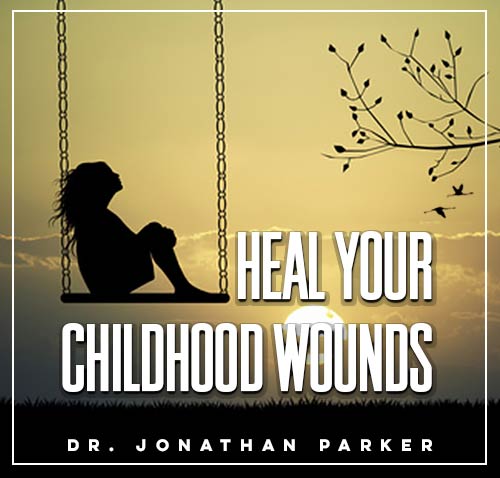Effective Childhood Trauma Therapy

Looking for more amazing products? Check out our online store and explore our collection here! Happy shopping!
Before diving in, please note: This post is for informational purposes only. If you’d like to know more about how we approach topics, feel free to check out our friendly Disclaimer Page.
Hey there, amazing readers! 
We’re committed to delivering quality posts, and your support (even just sticking around despite the ads) means everything to us. So, bear with us, and thanks for helping us keep the good vibes rolling. Now, on to the fun stuff!
TRANSLATE BUTTON AT THE END OF THE ARTICLE
Understanding Childhood Trauma
Childhood trauma refers to experiences that cause significant distress or harm to a child’s emotional or physical well-being.
These traumatic events can range from abuse and neglect to witnessing violence or natural disasters.
It is crucial to understand that children are particularly vulnerable to the effects of trauma due to their developing brains and lack of coping mechanisms.
Childhood trauma can have lasting impacts on a person’s mental health, relationships, and overall quality of life if not addressed and treated effectively.
Importance of Childhood Trauma Therapy
Childhood trauma therapy plays a pivotal role in helping individuals process their past experiences, heal from emotional wounds, and develop healthy coping strategies.
Therapy provides a safe and supportive environment for trauma survivors to explore their feelings, thoughts, and behaviors related to the traumatic events they have endured.
By addressing and working through unresolved trauma, individuals can experience healing, growth, and a renewed sense of self.
Therapy also helps in breaking the cycle of trauma and preventing its negative effects from passing down to future generations.
Types of Childhood Trauma Therapy
There are various types of therapy approaches that can be effective in treating childhood trauma.
Some common modalities include:
Cognitive-Behavioral Therapy (CBT): A structured and goal-oriented therapy that helps individuals identify and change negative thought patterns and behaviors.
Eye Movement Desensitization and Reprocessing (EMDR): A therapy technique that uses bilateral stimulation to help process traumatic memories.
Play Therapy: A form of therapy that uses play and creative activities to help children express and process their emotions.
Trauma-focused Therapy: Specifically designed to address the effects of trauma on an individual’s mental health and well-being.
Benefits of Therapy for Trauma Survivors
Childhood trauma therapy offers a multitude of benefits for survivors, including:
Increased self-awareness and understanding of how trauma has impacted their lives.
Enhanced coping skills to manage distressing emotions and triggers.
Improved relationships with others by learning to trust and communicate effectively.
Reduction in symptoms of anxiety, depression, and post-traumatic stress disorder (PTSD).
Greater sense of empowerment and control over their lives.
Techniques Used in Trauma Therapy
Therapists use a variety of techniques to help trauma survivors process their experiences and heal from the effects of trauma.
Some common techniques include:
Mindfulness and relaxation exercises to help individuals stay present and regulate their emotions.
Journaling and expressive writing to explore thoughts and emotions related to trauma.
Imagery and visualization exercises to reprocess traumatic memories in a safe and controlled manner.
Grounding techniques to help individuals feel more connected to the present moment and their surroundings.
Role of Therapist in Trauma Healing
Therapists play a crucial role in guiding trauma survivors through the healing process.
They provide a safe and non-judgmental space for individuals to explore their trauma, express their emotions, and work towards healing.
Therapists also help survivors build resilience, develop coping strategies, and challenge negative beliefs about themselves that may have resulted from their traumatic experiences.
Discover "SUPERFOODS: The Key to Health and Balance
"
By establishing a trusting and supportive therapeutic relationship, therapists empower survivors to reclaim their sense of self and move towards a brighter future.
Creating a Safe Environment for Healing
Creating a safe environment is essential in trauma therapy to ensure that survivors feel secure and supported during their healing journey.
Therapists can create a safe space by:
Establishing clear boundaries and expectations for therapy sessions.
Providing a confidential and non-judgmental setting for survivors to share their experiences.
Encouraging open communication and validating survivors’ emotions and experiences.
Respecting survivors’ autonomy and empowering them to make choices about their treatment.
Building Trust in Therapy Sessions
Building trust between the therapist and the survivor is a critical aspect of trauma therapy.
Trust allows survivors to feel comfortable sharing their experiences, emotions, and vulnerabilities without fear of judgment or retraumatization.
Therapists can build trust by:
Consistently showing empathy, compassion, and understanding towards survivors.
Honoring survivors’ autonomy and choices in their healing journey.
Maintaining confidentiality and creating a safe space for survivors to express themselves.
Being reliable, consistent, and transparent in their therapeutic approach.
Developing Coping Skills for Trauma
One of the primary goals of trauma therapy is to help survivors develop healthy coping skills to manage their emotions and responses to triggers.
Coping skills can include:
Deep breathing exercises to calm the nervous system during moments of distress.
Grounding techniques to stay present and connected to the environment.
Positive self-talk and affirmations to challenge negative beliefs and thoughts.
Engaging in hobbies, physical activity, or creative outlets to express emotions and reduce stress.
Addressing Negative Thought Patterns
Childhood trauma often leads to the development of negative thought patterns and beliefs about oneself and the world.
In therapy, survivors can work towards challenging and changing these negative beliefs by:
Practicing cognitive restructuring to identify and replace negative thoughts with more balanced and realistic ones.
Engaging in self-compassion exercises to cultivate a kind and understanding relationship with oneself.
Processing and reframing traumatic memories to reduce their impact on current thoughts and beliefs.
Building a sense of empowerment and agency by focusing on strengths and resilience.
Establishing Healthy Boundaries
Establishing healthy boundaries is crucial in trauma therapy to ensure that survivors feel safe, respected, and in control of their healing process.
Therapists can help survivors establish boundaries by:
Identifying and communicating personal boundaries in therapy sessions.
Exploring past experiences that have led to boundary violations and working towards healing those wounds.
Learning to assertively communicate needs and limits with others in a respectful manner.
Practicing self-care and prioritizing one’s well-being to maintain healthy boundaries in relationships.
Long-Term Effects of Childhood Trauma Therapy
Childhood trauma therapy can have long-lasting effects on survivors’ lives, well-being, and relationships.
Some of the long-term benefits of trauma therapy include:
Discover "Sports Nutrition: The Importance of Nutrition and Exercise for Overall Health
"
Improved self-esteem and self-awareness.
Stronger coping skills and resilience in the face of challenges.
Healthier relationships and communication patterns with others.
Reduced symptoms of anxiety, depression, and PTSD.
Increased sense of empowerment, agency, and control over one’s life.
Conclusion
In conclusion, childhood trauma therapy is a vital tool in helping survivors heal from past experiences, develop healthy coping skills, and reclaim their sense of self.
By understanding the importance of therapy, exploring different types of therapy approaches, and implementing effective techniques, survivors can experience lasting healing and growth.
Therapists play a key role in guiding survivors through the healing process, creating a safe environment for healing, and empowering survivors to build trust, develop coping skills, and establish healthy boundaries.
Ultimately, childhood trauma therapy can have profound long-term effects on survivors’ well-being and quality of life, offering hope, healing, and a path towards a brighter future.

The Enlightenment Journey is a remarkable collection of writings authored by a distinguished group of experts in the fields of spirituality, new age, and esoteric knowledge.
This anthology features a diverse assembly of well-experienced authors who bring their profound insights and credible perspectives to the forefront.
Each contributor possesses a wealth of knowledge and wisdom, making them authorities in their respective domains.
Together, they offer readers a transformative journey into the realms of spiritual growth, self-discovery, and esoteric enlightenment.
The Enlightenment Journey is a testament to the collective expertise of these luminaries, providing readers with a rich tapestry of ideas and information to illuminate their spiritual path.
Our Diverse Expertise
While our primary focus is on spirituality and esotericism, we are equally passionate about exploring a wide range of other topics and niches 

To ensure we provide the most accurate and valuable insights, we collaborate with trusted experts in their respective domains 
Our blog originally focused on spirituality and metaphysics, but we’ve since expanded to cover a wide range of niches. Don’t worry—we continue to publish a lot of articles on spirituality! Frequently visit our blog to explore our diverse content and stay tuned for more insightful reads.
Hey there, amazing reader! 
Check out our store here and take a peek at some of our featured products below! Thanks for being awesome!
















